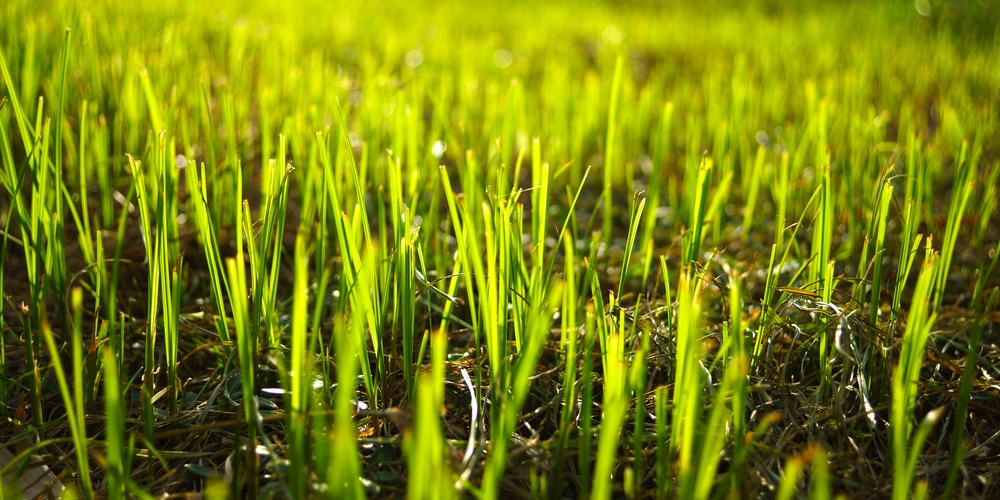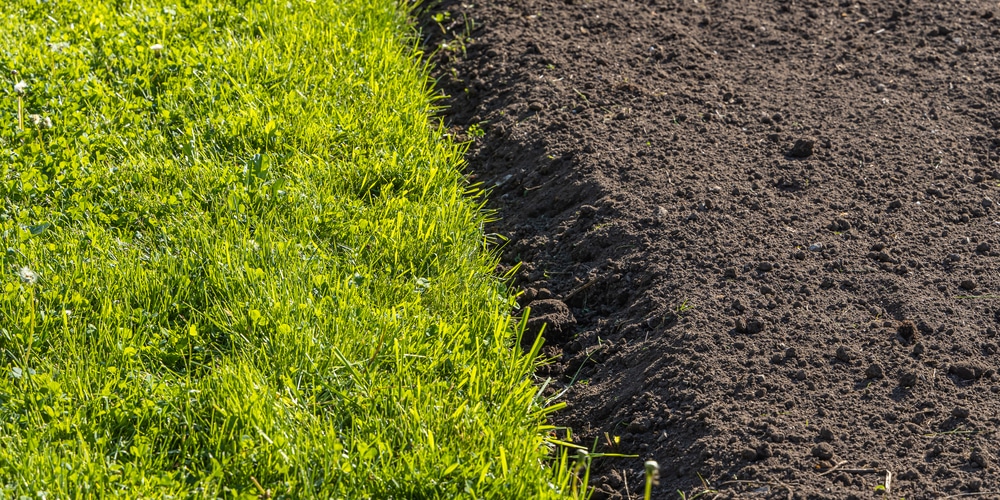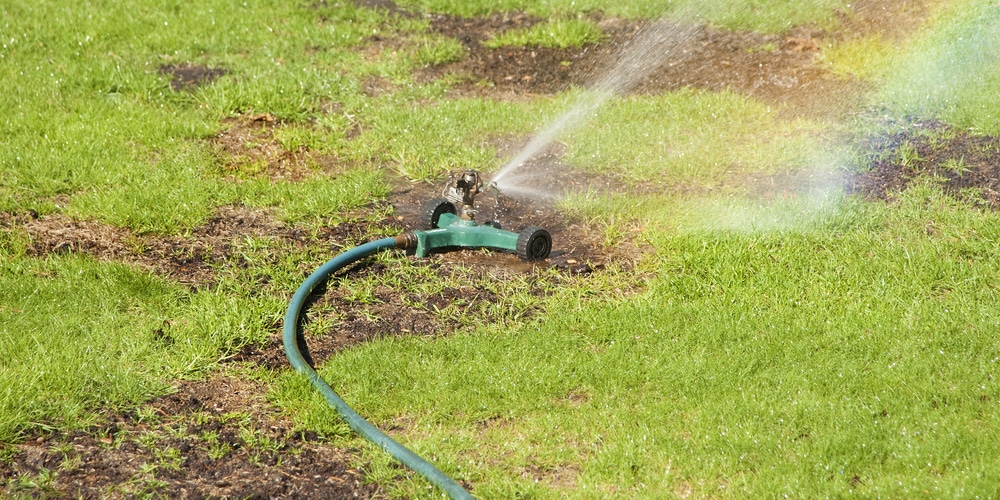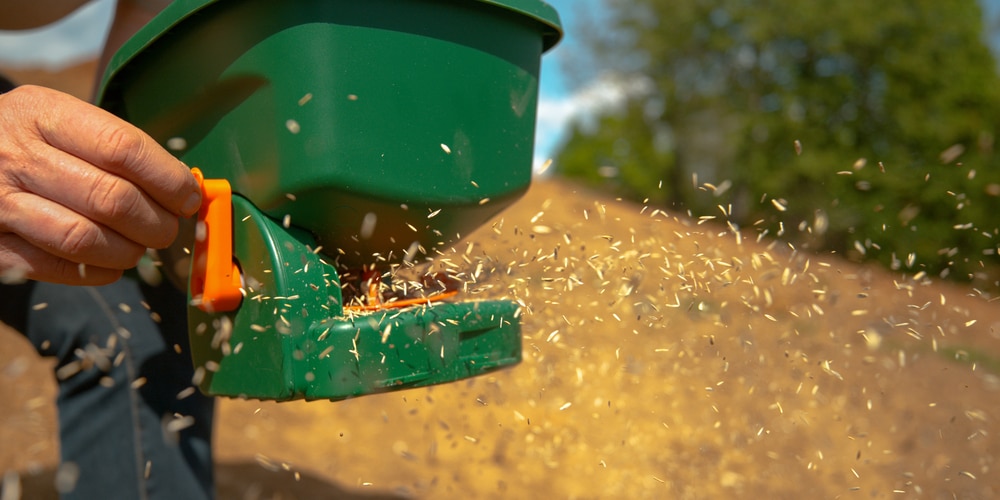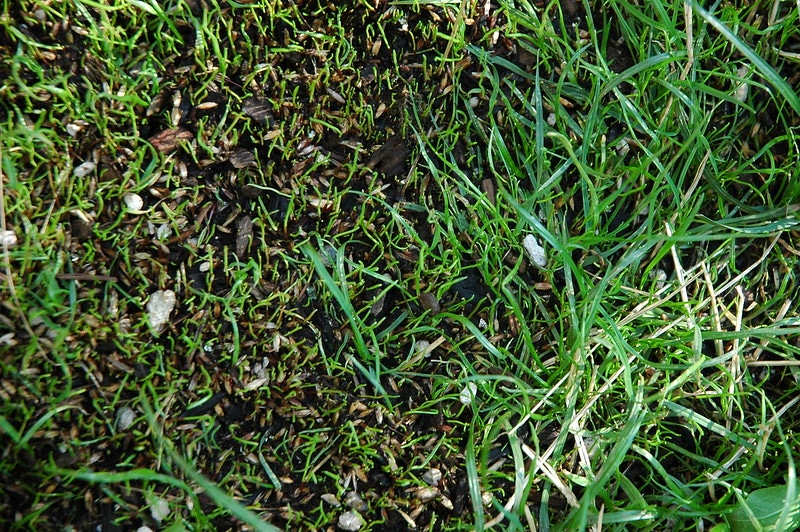| Question | When to Plant Grass Seed in New Jersey? |
|---|---|
| Answer | Early fall (late August to mid-October) and late spring (mid-April to early May). |
| More Info |
|
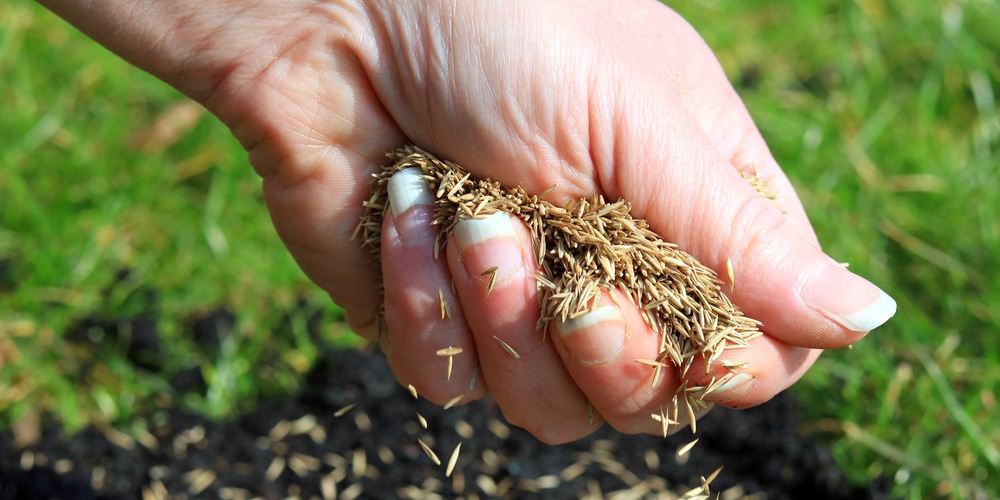 In New Jersey, the best times to plant grass seed are in early fall and late spring, aligning with the state’s temperate climate. Early fall, particularly from late August to mid-October, is ideal as the soil is still warm, which aids germination, and cooler temperatures reduce the stress on young grass.
In New Jersey, the best times to plant grass seed are in early fall and late spring, aligning with the state’s temperate climate. Early fall, particularly from late August to mid-October, is ideal as the soil is still warm, which aids germination, and cooler temperatures reduce the stress on young grass.
Additionally, fall planting benefits from fewer active weeds to compete with. Spring planting should occur from mid-April to early May, after the last frost has passed and when soil temperatures have risen above 50°F.
While fall is generally preferred for its optimal growing conditions, spring offers a second opportunity for seeding, especially for repairing winter damage.
Understanding New Jersey’s Grass Planting Seasons
New Jersey’s climate, marked by distinct seasons, dictates the optimal times for planting grass seed.
Gardeners and homeowners must pay attention to frost dates and seasonal temperatures to ensure the successful germination and growth of their lawns.
In New Jersey, spring and fall are the primary seasons for planting grass, each with its advantages:
- Spring: Temperatures rise and frost subsides, making it a suitable time for seeding. However, one should wait until after the last frost date to avoid damage to the new grass shoots.
Zone 6 typically has its last frost around April 21st, while Zone 7 is around April 3rd.
- Fall: Recognized as the best time for planting due to cooler temperatures, reduced weed competition, and more consistent moisture levels.
Aim to plant at least 45 days before the first expected frost to establish roots. For Zone 6, this translates to seeding by approximately October 17th.
| Zone | Last Frost (Spring) | First Frost (Fall) |
|---|---|---|
| 6 | April 21st | October 17th |
| 7 | April 3rd | Before October 17th |
A gardener should prepare the soil by clearing debris, testing pH, and adding nutrients.
When seeding, one must ensure even distribution and maintain moisture.
Seasonally appropriate care contributes to the longevity and health of New Jersey lawns, resulting in lush, robust grass during the growing season.
Preparing Soil for Grass Seeding in New Jersey
Proper soil preparation is crucial for successful grass seeding in New Jersey. The process involves soil testing, improving soil quality, and selecting a grass seed that thrives in New Jersey’s distinct climate.
Soil Testing
Before seeding, one must test the soil to determine its pH level and nutrient content.
The optimal pH range for most grass types is between 6.0 and 7.0.
A soil test can be conducted using a home testing kit or by sending a sample to a local extension service.
- pH Level: Check if lime or sulfur is needed to correct the soil pH.
- Nutrient Profile: Identify deficiencies in nutrients like nitrogen, phosphorus, and potassium.
Soil Improvement
Once soil testing is complete, improving the soil is the next step.
This involves addressing any nutrient deficiencies or pH imbalances and implementing practices to enhance soil structure and fertility.
- Nutrients: Apply fertilizers based on the soil test recommendations.
- Administer organic matter such as compost to
- improve soil structure
- increase water retention
- foster beneficial microbial activity
Selecting the Right Grass Seed
Grass varieties have different requirements and tolerances, making the choice of seed pivotal for a lush New Jersey lawn.
Climate and the lawn’s light conditions should guide the selection.
- Cool-season grasses like Kentucky bluegrass and fescue are well-suited to New Jersey’s climate.
- Consider shade tolerance, drought resistance, and maintenance needs when choosing a grass type.
By carefully assessing and amending the soil, one lays a strong foundation for a healthy, vibrant lawn that will endure the diverse weather conditions of New Jersey.
Best Practices for Grass Seeding in New Jersey
Grass seeding in New Jersey requires precise timing and methods to achieve a lush, healthy lawn.
Homeowners should focus on fall planting for optimal growth, leveraging specific seeding techniques and diligent maintenance post-seeding.
Seeding Techniques
Proper seed selection for New Jersey’s climate is crucial. Homeowners should select a grass type suitable for their specific area, be it cool-season grasses for northern parts or warm-season varieties for the southern regions. They can consult local nurseries or extension services to make an informed choice.
For seeding, the following steps are recommended:
- Prepare the soil by clearing the area of debris and weeds.
- Use a rake or tiller to loosen the top 2-3 inches of soil.
- Apply a starter fertilizer to the soil to aid in germination.
- Distribute the grass seed evenly using a spreader.
- Lightly rake the seeds into the soil to ensure contact.
- Apply a thin layer of mulch or straw to retain moisture and protect seeds.
Watering and Maintenance
Consistent watering post-seeding is vital.
For the first few weeks, grass seeds should be kept moist, but not waterlogged.
Homeowners should water lightly once or twice a day to foster germination—reducing frequency once germination occurs.
Post-germination maintenance includes:
- Gradually transition to deeper, less frequent watering sessions to encourage deep root growth.
- Initiate mowing when the grass reaches about 3 inches in height; never removing more than one-third of the blade length at a time.
- Monitor for weeds and address them promptly to prevent competition for resources.
Overseeding Existing Lawns in NJ
Overseeding is a method to improve the density of lawns by sowing new grass seed directly onto existing turf. In New Jersey, timing and preparation are critical to successful overseeding.
Timing: The best periods for overseeding in New Jersey align with cooler temperatures, typically the fall and spring.
For fall overseeding, aim to seed at least 45 days before the expected first frost. Spring overseeding should occur after the last frost date, respecting the growing conditions needed for seed germination.
- Zone 6: Overseed by October 17th (fall) or after April 21st (spring)
- Zone 7: Overseed by October 17th (fall) or after April 3rd (spring)
Preparation Steps:
- Dethatch: Remove thatch, which allows better seed-to-soil contact.
- Aerate: Perforate the lawn to alleviate soil compaction.
- Mow: Cut the existing grass to a height of 1.5 to 2 inches.
- Topsoil: Consider a thin layer of topsoil to enhance poor soil conditions, but no more than 1/4 inch to avoid any potential harm to tree roots or drainage issues.
Overseeding Process:
- Clean debris and remove weeds to ensure a tidy seedbed.
- Apply the seeds evenly across the lawn, using a spreader for consistency.
Grass Seed Planting Timetable by Region
In New Jersey, the diverse climate necessitates understanding the best times to plant grass seed based on regional considerations.
New Jersey encompasses United States Department of Agriculture (USDA) hardiness zones 6 through 7.
The state experiences a range of cool to transitional climate zones, which influence the ideal seeding times.
Northern New Jersey:
- Cool-season grasses: These include fescue, ryegrass, and bluegrass.
- Optimal planting time: Late summer to early fall (mid-August to mid-October)
- Why? The soil is warm, moisture levels are typically adequate, and there are fewer weeds to compete with.
- Note: Early spring planting is possible but less ideal due to more weed competition and variable weather conditions.
Central New Jersey:
- Cool-season grasses: Similar to the northern region, these varieties are best.
- Optimal planting time: Aligns with Northern NJ; consider late summer into fall.
- Early spring (March to early May) is also workable, yet watch for spring weeds and ensure the soil temperature is above 50 degrees for seed germination.
Southern New Jersey:
- Warm-season grasses: Zoysia and Bermuda grass are more common here due to the warmer climate.
- Optimal planting time: Late spring to early summer (May to July)
- Soil temperatures should be consistently above 65°F for these grasses to thrive.
Statewide New Jersey Tips:
- Soil testing is recommended to determine pH adjustments and nutrient needs.
- Regardless of region, adequate preparation of the seedbed and post-seeding care (watering, fertilization) is essential for successful germination and establishment.
Frequently Asked Questions
In New Jersey, planting grass seed at the right time is crucial for establishing a resilient and healthy lawn. The following FAQs address specific timings, methods, and considerations for seeding grass in this region.
What is the optimal time frame for sowing grass seed in New Jersey?
The optimal time for sowing grass seed in New Jersey is typically between mid-August and mid-September.
This period aligns with cooler temperatures and consistent moisture levels favorable for seed germination and root development.
When can I start planting grass seed in spring within the New Jersey region?
Grass seed can be planted in spring, as soon as the risk of frost has passed and soil temperatures consistently reach at least 50 degrees Fahrenheit. This usually falls in the early part of spring.
Which month is recommended for applying grass seed in New Jersey?
For fall planting, the recommended months are from mid-August to mid-September.
For spring sowing, it is typically from April to mid-May, provided soil conditions are suitable.
What is the best grass seed variety for the northeastern climate of New Jersey?
The northeastern climate of New Jersey is suited to cool-season grasses like Kentucky Bluegrass, Perennial Ryegrass, and Fine Fescues. These varieties are known to thrive in the temperate conditions of the region.
How should I go about planting grass seed in New Jersey?
Soil should be properly prepared by clearing debris, testing the pH level, and adding necessary nutrients.
Seeds should be evenly distributed and covered with a thin layer of soil or compost, followed by consistent watering to maintain moisture for germination.
Is there a cutoff time in spring after which I should not plant grass seed in New Jersey?
It is not recommended to plant grass seed too late in spring since the impending heat of summer can stress young seedlings.
Aim to complete seeding activities before the temperatures rise sharply, which can be around late May.
Last update on 2025-06-06 / Affiliate links / Images from Amazon Product Advertising API



